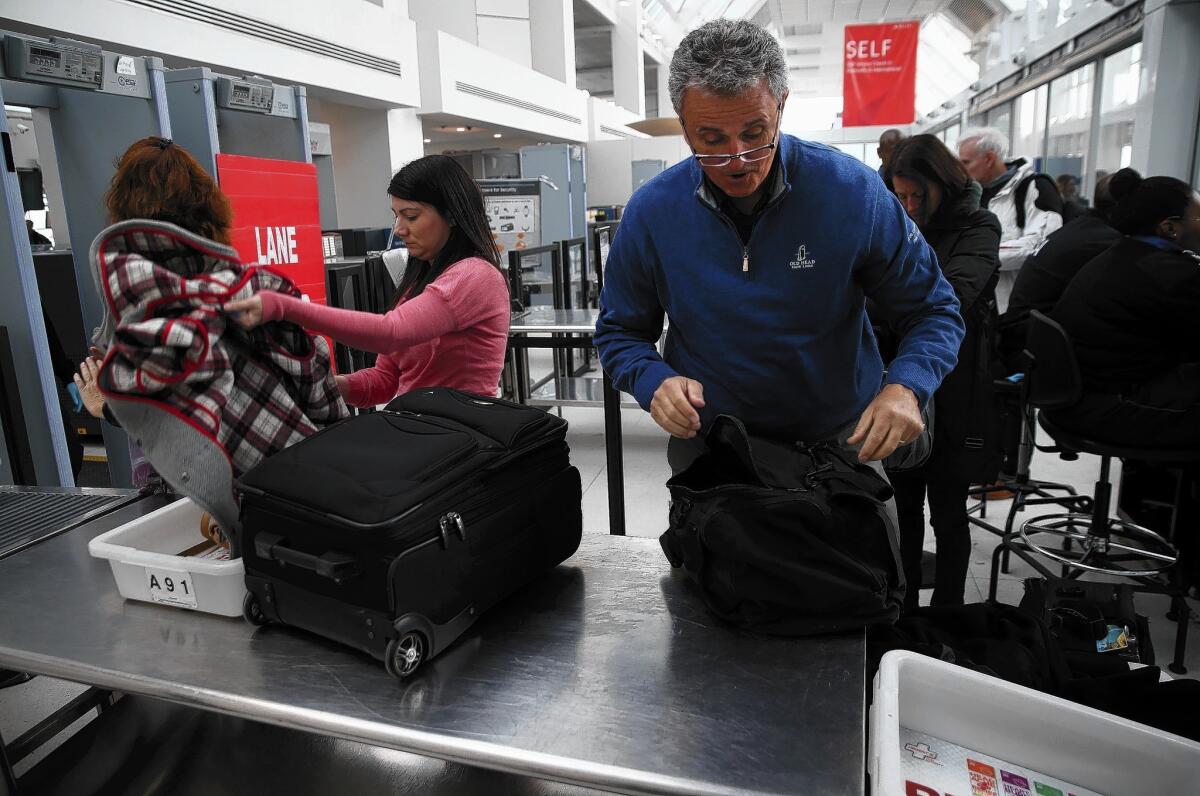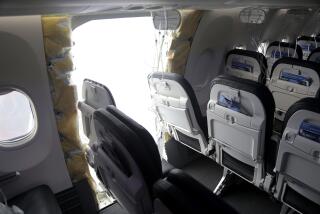Supreme Court shields airlines in defamation case

WASHINGTON — The Supreme Court on Monday shielded airlines from being sued when they alert the government to threatening or suspicious behavior by their pilots or passengers, even if the reports turn out to be exaggerated or misleading.
In a 6-3 decision, the high court tossed out a $1.2-million defamation verdict given to a fired pilot who was pulled from a flight after his employer, Air Wisconsin, warned the Transportation Security Administration that he could be armed and may be “unstable.”
The justices said that following the Sept. 11, 2001, attacks, Congress passed a law to encourage airlines to warn federal air safety officials of possible threats, and airlines cannot be sued for providing such warnings.
“Congress meant to give air carriers the ‘breathing space’ to report potential threats to security officials without fear of civil liability for a few inaptly chosen words,” said Justice Sonia Sotomayor for the court.
She referred to the suggestion that the pilot, William Hoeper, may have suffered from mental instability and that he might have been carrying a gun. Neither was shown to be true. Instead, Hoeper had failed a proficiency test that he needed to pass in order to fly a new kind of airplane and keep his job, and he reportedly “blew up” in frustration at an instructor.
In his defamation suit, he said the alert sent to the TSA wrongly suggested he was mentally deranged. And though he was authorized to carry a weapon on flights, he did not have a gun with him when he was in Virginia undergoing testing.
After the alert was sent to the TSA, Hoeper was removed as a passenger from an airplane at Dulles International Airport in Virginia and questioned. After authorities determined there was no threat, he was allowed to leave on a later flight.
Back home in Colorado, he sued Air Wisconsin, alleging defamation and claiming that the incident destroyed his professional reputation. A jury agreed the alert was false and misleading.
The Supreme Court took up the case to decide for the first time how to apply the post-Sept. 11 law. Justices agreed that the airlines were shielded from liability as long as their reports to the TSA were “materially true.”
In this instance, Sotomayor wrote, the airline cannot be held liable just because some lawyers or judges might think a mention of “mentally unstable” could be seen as reference to a serious mental illness.
“If such slips of the tongue could give rise to major financial liability, no airline would contact TSA (or permit its employees to do so)” without delay, Sotomayor said. “Hoeper was not some traveling businessman who yelled at a barista in a fit of pique over a badly brewed cup of coffee,” she continued. He was a pilot who “could plausibly have been carrying a firearm,” she said.
Her opinion noted that the 1987 crash of a Pacific Southwest Airlines flight in California was attributed to a recently fired ticket agent who brought a gun aboard the plane and shot the flight crew.
Justice Antonin Scalia dissented in part and said the case should have been sent back to Colorado to reconsider the claim involving the pilot’s mental instability. Justices Ruth Bader Ginsburg and Elena Kagan joined in the dissent.
uth Bader Ginsburg and Elena Kagan joined in the dissent.
More to Read
Start your day right
Sign up for Essential California for news, features and recommendations from the L.A. Times and beyond in your inbox six days a week.
You may occasionally receive promotional content from the Los Angeles Times.







